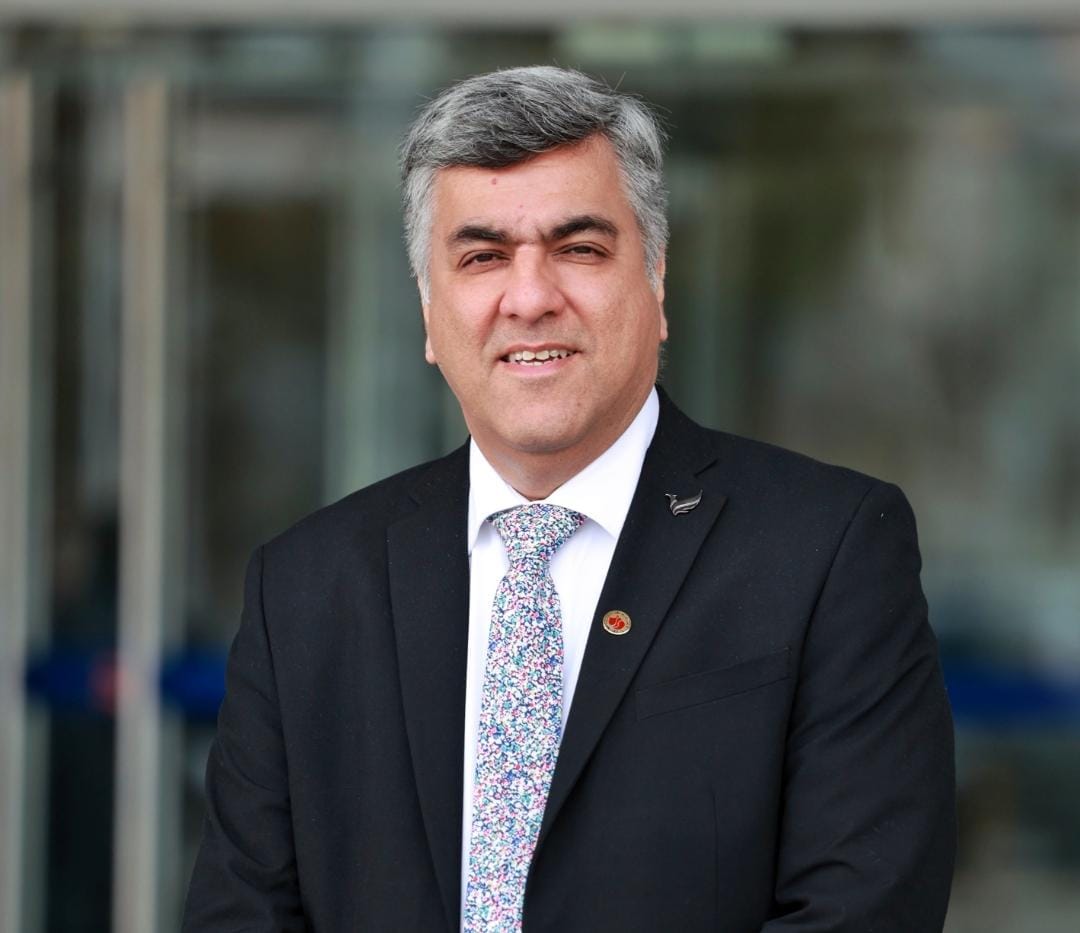
by Suman Gupta
The 11th World Congress on Prevention of Diabetes and its Complications, along with Diabetes Research & Solutions, was successfully held from August 30 to September 1, 2024, at The Westin Mumbai, under the aegis of the Mumbai Diabetic Care Foundation.
This international gathering aimed to provide the latest updates on the prevention of diabetes and its complications among individuals with both type 1 and type 2 diabetes. It offered a unique opportunity for healthcare professionals from across the country to share the latest scientific advances in the field based on their expertise and experience, helping to develop strategies for advancing efforts to treat and prevent diabetes-related complications.
Several leading doctors from around the world, including Prof. Jaakko Tuomilehto, Prof. Pablo Aschner Montoya, Prof. Peter Schwarz, and Prof. Noel Barengo, addressed and discussed the latest techniques in diabetes care and prevention.
The conference proved to be a valuable platform for innovative and new ideas to be heard and discussed. It provided delegates with an ideal setting to exchange research and best practices in the prevention, education, and treatment of diabetes-related complications as part of the scientific program.
 According to Dr. Manoj Chawla, Organizing Chair, “The conference enables us to advance towards our common goal of preventing diabetes and improving the quality of life for people living with diabetes and related disorders around the globe. It is our privilege to host so many experts in the field of endocrinology and diabetes research.”
According to Dr. Manoj Chawla, Organizing Chair, “The conference enables us to advance towards our common goal of preventing diabetes and improving the quality of life for people living with diabetes and related disorders around the globe. It is our privilege to host so many experts in the field of endocrinology and diabetes research.”
Expert doctors from across the globe, including Germany, the UK, Italy, South Africa, Switzerland, Israel, and Australia, participated in this major conference.
 Dr Purvi Chawla Organising Secretary further added, “The need of the hour is to treat diabetes early and to treat aggressively to ensure good glycaemic legacy with a holistic approach.”
Dr Purvi Chawla Organising Secretary further added, “The need of the hour is to treat diabetes early and to treat aggressively to ensure good glycaemic legacy with a holistic approach.”
With over 537 million adults worldwide currently living with diabetes, the global prevalence of this chronic condition has reached alarming levels. Experts at the World Congress on Diabetes emphasized that prevention is key to controlling the diabetes epidemic, particularly Type 2 diabetes, which accounts for nearly 90% of all cases. Without concerted efforts to prevent diabetes, the number of affected individuals is projected to rise sharply in the coming decades, leading to increased healthcare costs and significant impacts on quality of life.
Why Prevention is Crucial
Rising Prevalence:
The increasing rates of diabetes, particularly in low- and middle-income countries, are driven by lifestyle changes, such as unhealthy diets and sedentary behaviors. The economic and healthcare burdens of diabetes are immense, with complications such as heart disease, stroke, kidney failure, and nerve damage placing a significant strain on health systems.
Preventing Diabetes Reduces Long-Term Complications:
Prevention strategies can help individuals avoid the onset of Type 2 diabetes, reducing the likelihood of severe complications and improving overall health outcomes. Preventing diabetes is also more cost-effective than treating its complications, which can include prolonged hospitalizations, expensive medications, and surgical interventions.
Key Messages on Diabetes Prevention
Lifestyle Modifications:
Nutrition:
A healthy diet is critical in preventing diabetes. Recommendations include:
– Consuming whole grains, fruits, vegetables, lean proteins, and healthy fats.
– Reducing the intake of sugary drinks, processed foods, and unhealthy fats.
Proper nutrition helps control weight, lower blood sugar levels, and decrease insulin resistance, all of which are vital for diabetes prevention.
Physical Activity:
Regular exercise is a powerful preventive measure against Type 2 diabetes. It helps:
– Maintain a healthy weight, one of the leading risk factors for diabetes.
– Improve insulin sensitivity and regulate blood glucose levels.
– Decrease the risk of cardiovascular diseases, which are commonly associated with diabetes.
Experts recommend at least 150 minutes of moderate-intensity physical activity per week to reduce diabetes risk.
Timely Screening and Monitoring:
Early detection of risk factors such as pre-diabetes, obesity, high blood pressure, and high cholesterol can significantly reduce the risk of developing diabetes. Regular screening is especially important for individuals at higher risk, including those with a family history of diabetes, sedentary lifestyles, or poor diets.
Community-Based Prevention:
Large-scale community efforts are essential for diabetes prevention. Public health initiatives should focus on:
– Educating the public about healthy eating habits and promoting physical activity.
– Providing accessible resources for preventive care, including affordable screenings and counseling services.
– Encouraging collaboration between employers, schools, and local governments to create environments that promote healthy lifestyle choices.
Dr Peter Schwartz from Germany who is the current president of IDF ( International Diabetes Federation) hugely believes in the role of fasting and nutritional habits as a means of Preventing diabetes and preventing complications in people living with Diabetes.
Preventing diabetes is essential to mitigating the global health crisis posed by the rising prevalence of Type 2 diabetes. Emphasizing lifestyle modifications—such as improved nutrition and increased physical activity—coupled with timely screening for risk factors offers a scientifically supported approach to reducing the incidence of the disease. By integrating these prevention strategies into public health policies and individual care plans, we can significantly lower the future burden of diabetes and its associated complications, leading to better long-term outcomes worldwide. Continued research and collaborative efforts are necessary to refine and implement effective prevention measures at both individual and societal levels.
